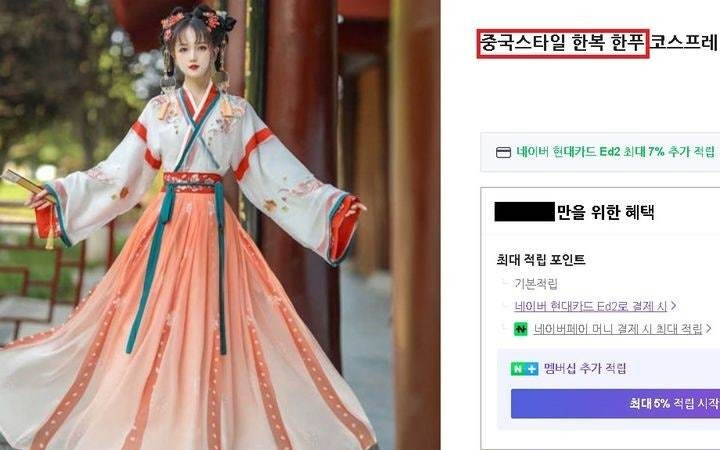
SEOUL, South Korea—A fresh cultural dispute is escalating in South Korea as the traditional Chinese garment, 'Hanfu,' is being prominently featured and sold alongside or under the label of the Korean traditional dress, 'Hanbok,' on major domestic online shopping platforms. The issue came to a head just ahead of the Chuseok (Korean Thanksgiving) holiday, a time when interest in traditional Korean clothing is high.
The controversy was brought to public attention by Professor Seo Kyoung-duk of Sungshin Women's University, a well-known activist for promoting accurate Korean culture worldwide. Professor Seo took to social media to criticize the practice, which he said includes products being explicitly marketed as "Chinese-style Hanbok" or simply appearing in the search results for 'Hanbok.'
A Clear Distinction is Demanded
"It's perfectly fine to sell Chinese-style clothing," Professor Seo stated on October 2nd. "However, Hanbok and Hanfu are distinctly different garments, and they must be clearly distinguished when sold. Labeling and selling them as 'Chinese-style Hanbok' is truly absurd."
The core of the issue is the conflation of the two distinct cultural garments, which Professor Seo argues inadvertently lends credence to persistent, unfounded claims made by some in China. These claims often suggest that the Korean Hanbok is merely a derivative of the Chinese Hanfu.
"Even though large online shopping malls primarily act as platforms, they should have exercised due diligence through constant monitoring to prevent such incidents," Professor Seo emphasized. "Allowing these situations in the domestic market provides yet another pretext for such claims to spread in China."
Background of Cultural Tensions
The mislabeling is particularly sensitive due to a history of cultural friction between the two nations over the origin of Hanbok.
Chinese Assertions: In recent years, Chinese netizens have repeatedly asserted the claim that Hanbok originated from Hanfu.
Official Misrepresentations: Even official Chinese entities have been involved. China's largest search portal, Baidu Encyclopedia, has listed Hanbok as "Joseonjok clothing," referring to ethnic Koreans living in China. Furthermore, a past incident involving the Chinese electronics company Xiaomi saw its smartphone wallpaper store controversially label Hanbok as "Chinese culture."
Global Incidents: The controversy has occasionally spread globally, such as when a Korean-Chinese individual wore Hanbok at the 2022 Beijing Winter Olympics opening ceremony, which many Koreans viewed as China appropriating a core element of Korean culture by classifying it under its ethnic minorities.
Professor Seo underscored that while it is important to promote the Hanbok globally, correcting misrepresentations within Korea is equally crucial to safeguard the country's cultural heritage.
Call for Immediate Action
Professor Seo issued a clear demand to the domestic online shopping malls involved, urging them to take swift corrective measures. "The domestic online shopping malls where this problem was found must immediately separate and distinguish the sale of Hanbok and Hanfu," he urged.
The ongoing issue highlights the challenges South Korea faces in protecting the integrity of its traditional culture against global misrepresentation and appropriation, beginning right at its own commercial digital borders. The response of the shopping platforms is now awaited as the country heads into one of its most important traditional holidays.
[Copyright (c) Global Economic Times. All Rights Reserved.]




























